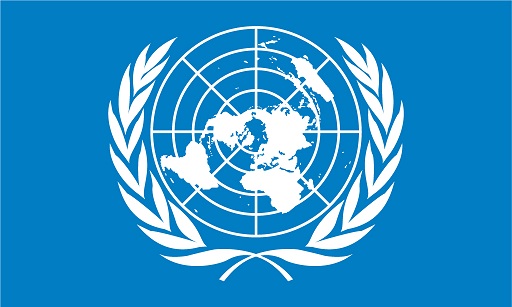It is no secret that any distinguished work, as well as any tangible success and progress in one of the bodies, stands behind distinguished organization and planning, and those behind them. You will find a successful administration that has been able to run these institutions successfully. Business management is an art that needs to be studied. It is also an individual talent inherited in personality that is developed and learned. Entrepreneurship is of great importance. Scholars have defined management in general, and they have given business management great importance. Management has special characteristics and tasks that must be recognized, just as the failed administration has indications of it, and this is what we will play a role on in this article.
First: the concept of management term
There were many ideas and opinions and directions that dealt with the definition of management and defining its concept. The literature on management included a large number of definitions. Each of the administrative researchers has a specific concept of management, according to his view of the components of the administrative function, but rather according to his basic concept of the administrative process itself.
The reasons that led to the researchers' disagreement on a specific definition of management can be summarized in three main reasons:
That management is a relatively modern science, this modernity did not allow a sufficient period of time for thinkers and researchers in the field of management to agree on one comprehensive and comprehensive definition of it, with reference to the fact that management has been known as a practice since ancient times.
That management includes all the various fields of economic, social and service life, and this inclusion has led to the difference and diversity of the nature of work in these areas, along with the novelty of management science, all of this has led to a delay in reaching a comprehensive definition of it, and to a complete agreement on its concepts and foundations.
That management is classified within the human sciences, not the natural sciences, as it deals with the human being as an independent unit, and also deals with him as a member of a work group subject to pressure and affected by it, and it studies - for this purpose - the human personality and its behaviors, which are characterized by continuous movement and instability, what It led to different interpretations of the human personality, its behavior, and its motivation from one thinker to another.
The following is a set of definitions drawn from the pioneers of administrative thought in order to understand its content:
Frederick Tyler defined management as: “knowing correctly what workers are intended to do, and then making sure that they do it in the best and cheapest way.” Henry Fayol defined management by defining the manager’s work, saying: “The meaning of a manager is: to anticipate, It plans, organizes, commands, coordinates, and controls.” Koontz and O'Donnell view management as "a series of sequential and integrated activities, beginning with defining goals and then drawing a way to reach them, through the preparation of planning, organizing, directing and controlling activities, which is called the administrative process."
As for Ali Abdel-Wahab, he defines it as: “a continuous social process that works to optimally exploit the available resources, through planning, organizing, leadership and control, to reach a specific goal.”
Second: the concept of business management
It relates to economic projects that aim to make a profit, and which are owned by individuals, whether in the form of a sole proprietorship or in the form of a joint stock company, and are applied in the private sector, i.e. in the corporate sector and various economic projects, whether they are factories, commercial, agricultural or service companies.
Third: Features of Business Administration:
Taking care of the corporation's comprehensive economy, capital management, and what falls under this name, such as setting immediate strategies, medium-term strategies, and long-term strategies, and well-thought-out plans, for the prosperity of the corporation's economy, and avoiding its financial losses.
Managing and organizing the administrative functions of the institution according to certain conditions and well-studied goals prepared for them, and coordinating production and investment programs, etc., according to the resources available to the institution.
Concluding commercial deals inside and outside the country, while taking care of the organization's economic interest and gaining the best customers for it.
Global follow-up of every economic and commercial innovation that matches or is similar to the enterprise’s commercial approach to work and production, while following up the activity of similar competitive institutions in industry, goods and products, and the offers they offer to customers.
Fourth: The characteristics of the chairman of the board of directors or the general manager.
The chairman of the board of directors or the general manager must have the following characteristics:
Competence, experience, and qualifications appropriate to his mission and job.
Honesty, sincerity, patience and lack of favoritism.
Swing, farsightedness, and insight, and each has the task, even if all the conditions of the job exist
The ability to make appropriate decisions and solve the problems of the organization, and be careful in making decisions and concluding deals.
Good and ethical treatment with customers and deal owners to ensure the continuity of their dealings with the institution, and not leaving them for any similar institution. The ethics of the institution’s president or general manager will support the institution financially and contribute to its development, and vice versa will cause alienation of customers and the institution’s financial loss, because the ethics of the general manager or president The board of directors plays a significant role in the institution's rise or decline.
And the. Developing sound future visions for the current, semi-annual, and future institution, and determining the timeline for their implementation, and bringing them into existence.
Fifth: Duties of the Chairman of the Board of Directors or the General Manager
Among the duties of the Chairman of the Board of Directors or the General Manager are the following:
Choosing the appropriate structure for the institution according to the number of its departments.
The direct selection or the representative of the task for the type of administrative jobs required for the institution, with conformity with the specifications and qualifications of the employees qualified for these departments.
Avoid picking on controversial precedents and problems at work.
Supervising the conclusion of agreements and deals with other companies, and major orders for the product or something similar.
Seeking to develop the job ladder for work, by developing and qualifying employees, and not leaving them as they are, while not relying on their previous work background only.
Avoiding the role of the mediator, serving personal interests in approving or rejecting employment requests, and prioritizing the appropriate competencies for the job, according to the seniority of the employment application, and as required by the interest of the institution.
Follow-up and guidance of work cadres in various departments from time to time; So that not more than a month.
Resorting to those with experience and consultation in solving the financial or other problems of the institution without retreating and insisting on his single point of view only.
The general situation in the institution is closely monitored and not overlooked, after which the appropriate decision is taken for each situation.
Holding periodic meetings with department managers and directing them to what serves and benefits the institution, and asking them about each department and how work is going on in it, and not only asking questions, but highlighting what documents the department manager’s statement.
Hold a meeting for employees in the departments, and inquire about any problems they face at work, or with the department manager.
Sixth: "Indicators of Failed Administration"
Wise management, distinguished by science, knowledge and specialization; One of the most important elements of the success of the institution, in all types of institutions, whether ministerial or not
Within the private sector, therefore, we find that the management’s lack of the basic elements of success such as specialization, knowledge, experience, and good management exposes the institution to many financial and functional problems, and it may reach humanity as well.
Among the most important indicators of failed management are the following signs:
Tyranny of opinion, narrow-mindedness, and unilateral decision-making.
Affected by the problems of the home, outside the work circle, and her inability to get rid of them while he is at work, on the quality of work performance, which affects, and the lack of attention to her tasks in the institution.
The barbarism of the distribution of roles in the institution, and the failure to put the right employee in the right place.
Seeking to employ her relatives within the list of employees who are not qualified for the job and who are not specialized in it, in that is an approved demagoguery method, in contravention of the eligibility and priority in hiring the best.
Weakness of character, inability to lead.
Piling work on a category of employees and exhausting them, while marginalizing their positive roles and practical abilities.
Monopolizing promotions over the inner circle close to the administration, and making the functional gang, to ensure its survival, the continuity of its power and influence, and the achievement of the goals that serve it, not those that serve the institution.
Evading from solving the problems of the institution because of the inability to develop appropriate solutions to the problems that the institution is exposed to.
Attaching any failure to the organization to the employees, and blaming them.
Rebuking and scolding employees in front of each other and scolding others, without regard to solving the problem, and the failed administration, especially against the distinguished employee, may do so to delude others into neglecting him, especially if this employee is qualified for the position of manager or for a senior position that may compete with management.
Attempting to attach and fabricate accusations against its competitors by working in order to move them away, and to monopolize the position.
Major waste or waste of time
In the context of the current debate about administrative development, the issue of wasting time emerges as a basic problem facing the administrative apparatus in all organizations in all its forms, and it stands as an obstacle in front of it and prevents the implementation of its objectives.
It may seem easy to talk about time wasters at first glance, but with a conscious and careful look at the case of organizations, the difficulties and negatives resulting from the existence of these wastes appear, and the comprehensive view of time wasters requires attention to the following:
Every inappropriate employment of an individual's time is a waste of time, as the manager wastes his time when he spends it on work of least importance, and he should have spent it on the most important and the most important, and the importance here is measured by the extent to which the manager's activities achieve his goals.
Although all wastes of time can be justified, there is no doubt that all wastes of time can also be rationalized and even replaced by productive activities. Hence, the individual remains responsible for it, and the solution remains in his hand. Time management is key to self-management, and not realizing the facts does not mean that they do not exist. Therefore, mismanagement of time makes the manager ineffective.
Time wasters - despite their abundance - can be divided into two parts: external and internal wastes. As for external wastes, their source is people such as: family, clients, or things such as: reading and writing letters, notes and reports. As for internal wastes, their source is internal and it is difficult to overcome them. The habit of procrastination, meetings, poor planning, inability to say (no), and others.
Conclusion
From the foregoing, it is clear how important business management is, especially in light of what we see that any remarkable progress in any of the institutions finds behind it a successful management.
References: - Taylor, F., Shop Management, Harper and Brothers. N.Y.: 1903, p. 21
- Fayol, H., General And Industrial Management, N.Y.: Pitman Pub. Co., Marshal: 1949. p.6.
Askar, Samir Ahmed, Principles of Management, previous reference, p. 23.
- Abdel-Wahhab, Ali, Introduction to Management, Institute of Public Administration, Riyadh, 1982 AD, p. 13.
- Time Management from an Islamic and Administrative Perspective Author: Dr. Khalid Bin Abdul Rahman Bin Ali Al Jeraisy Number of Parts: 1 (1/48)
An Introduction to Management, Dr. Omar Dora, 2009, pg. 65.
- The Art of Business Administration, Ahlam Al-Hassan, Nile and Euphrates Foundation for Printing, Publishing and Distribution, 2019 AD, pg.: 5.
- The Art of Business Administration, Ahlam Al-Hassan, Nile and Euphrates Foundation for Printing, Publishing and Distribution, 2019 AD, p.: 23.
- The Art of Business Administration, Ahlam Al-Hassan, Nile and Euphrates Foundation for Printing, Publishing and Distribution, 2019 AD, p.: 24.
- The Art of Business Administration, Ahlam Al-Hassan, Nile and Euphrates Foundation for Printing, Publishing and Distribution, 2019 AD, p.: 24.
Time Management from an Islamic and Administrative Perspective Author: Dr. Khalid Bin Abdul Rahman Bin Ali Al Jeraisy Number of Parts: 1 (1/108)



